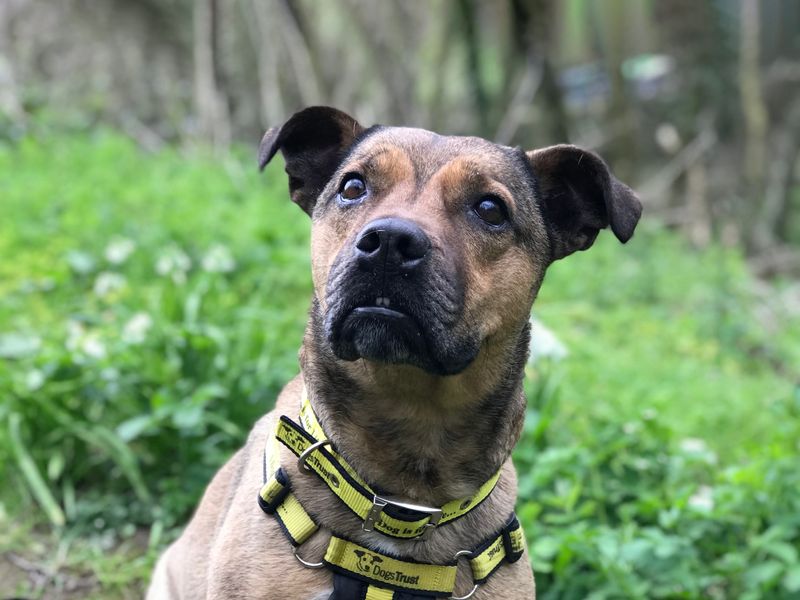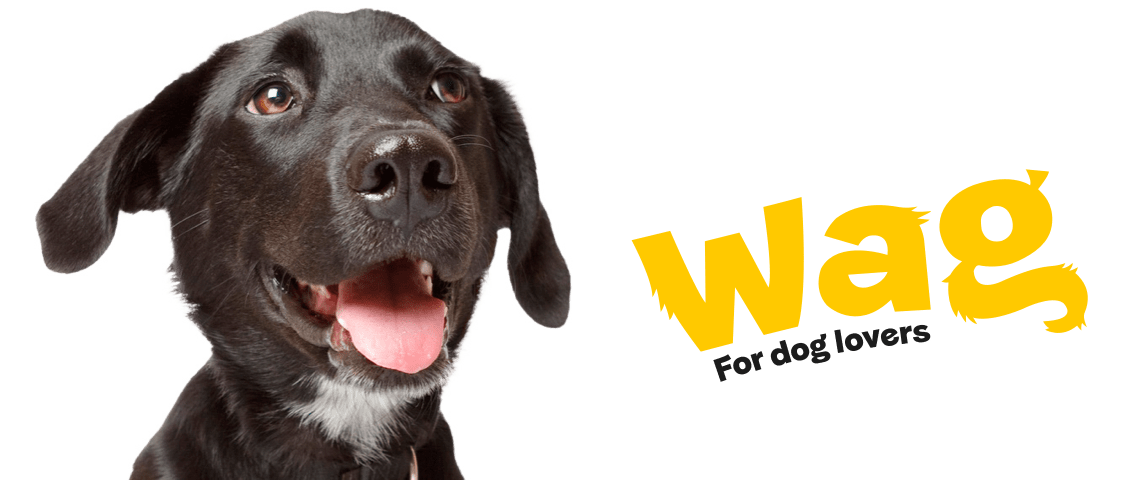What to do if your dog is scared of loud noises
Do loud noises impact your dog negatively? Find out how to help them stay calm when the volume increases.

Recent research suggests that a fear of loud noises is very common in the dog population. In fact, almost half of dog owners reported their dog reacted to loud noises by showing signs of fear or anxiety. More research is needed in this area. But these findings are pretty worrying for the welfare of our dogs. It means that potentially five million dogs in the UK are worried by noises they hear.
Three loud and unpredictable noises dogs are most afraid of are:
- fireworks
- thunderstorms
- gunshots.
Some dogs may show subtle signs they are scared. This might be being very clingy with you, their ears going back, not eating or taking treats as well as salivating or licking lips.
While others may try to clamber inside cupboards, hide under beds, run from room to room, tremble, shake or go to the toilet inside. When dogs hear loud noises outside, they can run away in panic. This could potentially be across roads or into other dangerous situations.
These noises that seem to come out of nowhere are incredibly distressing for your pooch. So, whether the signs are subtle or extreme, you need to help them to cope.
Preventing a fear of noises in dogs
The aim of giving puppies experiences of noises when they are young is to ensure that they perceive such noises as normal and unimportant. This is to help prevent the development of fear responses later in life.
In order to achieve this, every puppy needs to be exposed to noises at such a volume that they don’t show signs of anxiety or fear. You can do this using sound therapy for pets.
It is also important that puppies are not already anxious or fearful when they first hear noises. If they are, this will increase the risk that they will associate the noises with a negative experience.
To prepare for this:
- make sure your puppy is somewhere familiar before starting to play any noises
- have toys and food treats available before starting
- check you are familiar with signs of anxiety in your puppy, so you know if you are progressing too fast.
Household noises
Your puppy needs to experience a range of household noises. This includes washing machines, vacuum cleaners, doorbells, telephones, radio or TV, and food mixers. In most homes, this will happen naturally. But if there are particular noises they are unlikely to experience, then you should use recordings of these sounds.
Make sure your puppy has the opportunity to get used to household noises. To do this they will need to spend some time in parts of the house where you would normally use that household appliance.#
Follow our guide on how to introduce your dog to a vacuum cleaner to help your dog become comfortable with the sight and sound of the hoover. The same training processes can be applied to other appliances too.
Outside noises
You need to make sure your puppy has a positive experience of sounds that don't happen in the home, such as fireworks, gunshots, traffic and thunder.
The best way to gradually introduce these is with good quality recordings. Direct exposure of puppies to these loud noises is not a good idea as this could result in them becoming scared.
How to introduce loud noises to your dog
Make sure your pup is relaxed
Before we start to play any sounds or noises, make sure your pup is relaxed or engaged in positive behaviours such as play.
Start quietly
Noises need to start at a very low volume (barely audible to the human ear). This will help ensure that your puppy shows no sign of anxiety and there is no negative response.
Watch for a reaction
Watch your puppy carefully when the noises are on. They should continue playing or interacting as if nothing happened.
If this is the case, the volume of the sound can be slightly increased next time.
Repeat
This process is repeated, with the volume of noises increasing gradually over sessions. Each time, check that your puppy is always relaxed.
The sound should be stopped immediately if they seem anxious during a session.
Start again once they're relaxed
Once your dog is relaxed, start to play the sound but at a lower volume, so they no longer react.
When you next increase the volume again, ensure you do it by an even smaller amount.
How to help dogs cope with loud noises
If a loud noise causes your dog to show signs of anxiety or fear, then here’s what you can do to help them cope with it while they can hear it.
1. Reduce the direct impact of the noises and flashes
You can make the environment less scary for your dog by trying to block out the sounds of the fireworks or other noises as much as possible.
Shut windows and have your dog in the central part of the house. You can also play music or have the TV on to drown out the noises outside.
For fireworks or storms, you should also shut curtains to ensure your dog cannot see the flashes of light. Likewise, avoid taking your dog out when there might be fireworks – always finish their exercise in good time to be settled inside the house before it starts.
2. Stay calm yourself and don’t tell off your dog
It is important for you to stay calm too, and follow your normal routine. If you do something different from usual, this is likely to worry your dog even more.
For example, going backwards and forwards to the window to see what’s going on is likely to draw your dog’s attention to it.
Lots of people worry about how their dogs will react. But they won’t know that you are worried about them and may well associate your odd behaviour with the noises going on outside.
Don’t tell them off – even if their behaviour is destructive. They are scared and this will only make it worse.
3. Help your dog find a coping response
You need to help your dog to find a way of coping with noises. The best way of doing this is to provide them with a safe space. This can be any space the dog can hide in to give them a feeling of security. Ideally, it should be as soundproof as possible. It’s also a good idea to make the space quite small.
Ideally, the space should be introduced to a dog before the fireworks event or storm so that they can learn that it is a good place.
If you introduce it for the first time when your dog is frightened they may not use it – in which case don't try and force them to do so.
It will be something to work on for the next occasion. If your dog does use the space or goes to hide somewhere else, then it is better to not approach them or try and bring them out.
They are doing what works best for them to cope with the noises, and approaching them can increase their anxiety.
Many dogs seek reassurance from their owners when worried, to help them cope with the loud noises.
In the long-term, you don’t want them to be reliant on your attention but if they are frightened and want your reassurance, you should give it to them.
Longer-term treatment for dogs scared of loud noises
If you identify signs that your dog may be worried, talk to your vet about referral to a behaviourist. It is important to contact your vet first so that they can check that there are no medical problems, and help you find a qualified behaviourist. Your vet will also be able to discuss with you whether medication might be helpful.
Programmes of behaviour therapy will vary for each dog. But may include establishing a consistent way for your dog to cope when they hear noises.
This often includes teaching them not to rely on your attention to cope with noises. If they do, they will be much more distressed if loud noises happen when you’re not at home.
A fear of loud noises isn’t the only issue that can be prevented with training. Check out our training advice to find out what you can do to prevent unwanted behaviours from developing as they get older.





